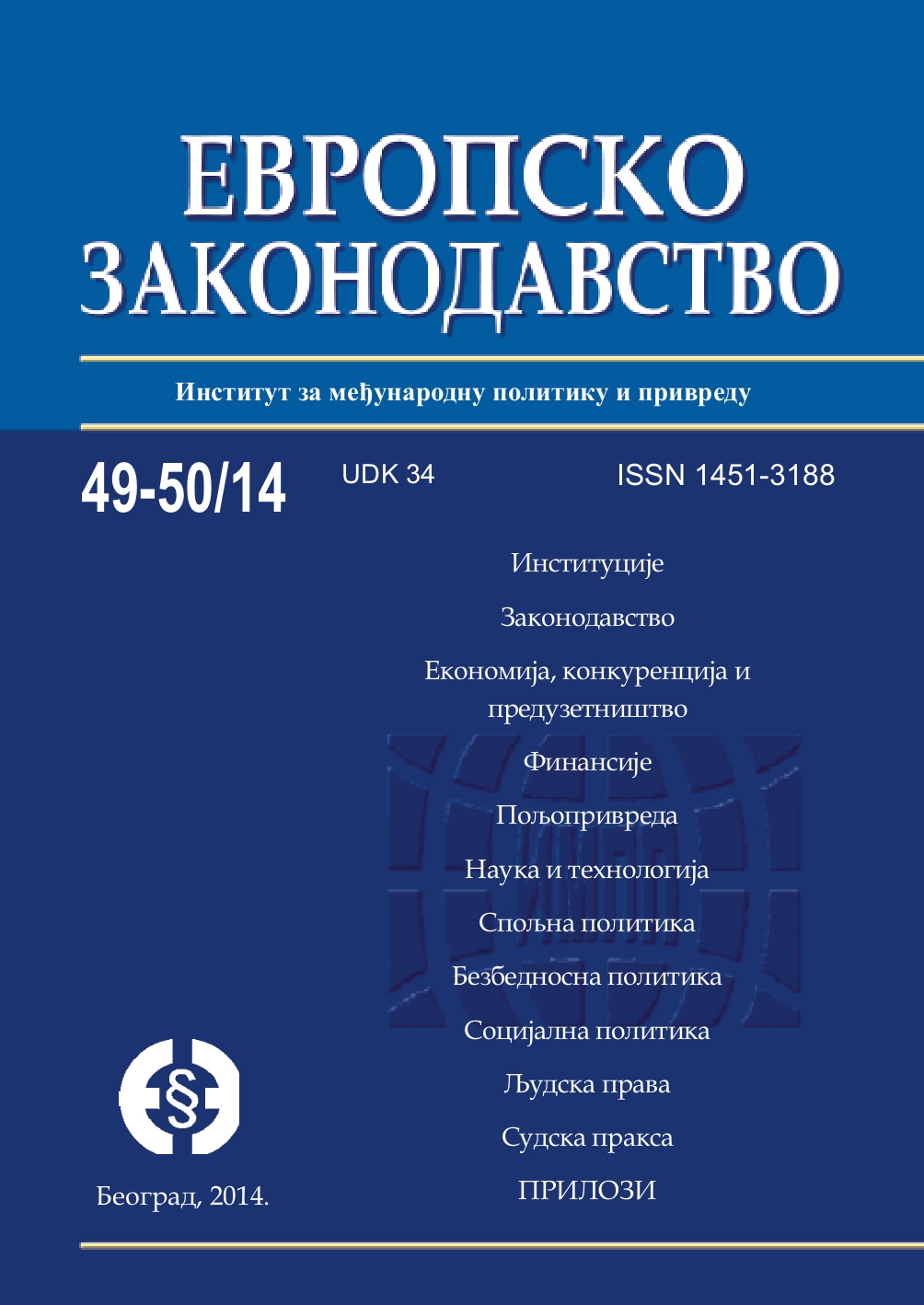Регулисање надлежности у стварима које се односе на потрошачке уговоре по одредбама Уредбе ЕУ 1215/2012
Regulation of jurisdiction in matters relating to consumer contracts under the provisions of EU Regulation 1215/2012
Author(s): Vladimir ČolovićSubject(s): EU-Legislation
Published by: Институт за међународну политику и привреду
Keywords: Regulation 1215/2012;consumer;contract;jurisdiction;domicile;third countries- non-members
Summary/Abstract: Regulation EU No. 1215/2012 of the European Parliament and of the Council of 12 December 2012 on Jurisdiction and the Recognition and Enforcement of Judgments in Civil and Commercial Matters defines the rules of jurisdiction and also of disputes relating to consumer contracts. In the same way, these matters are regulated in the previously issued documents, such as the Brussels Convention from 1968., Council Regulation No. 44/2001 of 22 December 2000 on Jurisdiction and the Recognition and Enforcement of Judgments in Civil and Commercial Matters and in the Convention on Jurisdiction and the Recognition and Enforcement of Judgments in Civil and Commercial Matters from 2009. Although in the meantime, several acts which regulate consumer protection passed, the provisions on jurisdiction in this area have remained the same. Regulation 1215/2012 primarily defines that consumer contracts cannot be concluded by consumers for the purpose of conducting economic or professional activity. This act defines these contracts. Except that, Regulation 1215/2012 applies to the cases where a party has a branch or a representative office in the State. Namely, where a consumer enters into a contract with a party who is not domiciled in a Member State but has a branch, agency or other establishment in one of the Member States, that party shall, in disputes arising out of the operations of the branch, agency or establishment, be deemed to be domiciled in that Member State. Regulation 1215/2012 defines that a consumer may bring proceedings against the other party to a contract either in the courts of the Member State in which that party is domiciled or, regardless of the domicile of the other party, in the courts for the place where the consumer is domiciled. Also, Regulation 1215/2012 defines the possibility of deviation from its provisions by agreement, which must be concluded after the dispute has arisen. This agreement must allow to the consumer to bring proceedings in before a court other than the court which is defined by the Regulation 1215/2012. Regulation 1215/2012 defines the rule of general jurisdiction, which is determined by the residence of the defendant in a Member State, irrespective of his nationality, which means that it can be sued in that member state, which also applies to disputes concerning consumer contracts. This paper presents the provisions of the Draft Act on Private International Law of the Republic of Serbia, which defines the jurisdiction of domestic courts in disputes arising from consumer contracts. By the rules of this Draft, jurisdiction shall exist, if the contract was concluded with a person who, at the time of conclusion of the contract, performs professional or commercial activity in the Republic of Serbia or directs such activities to the Republic of Serbia or to several countries including the Republic of Serbia, and the contract falls within the scope of this activity. If we talk about the dispute between the consumer and the merchant, the domestic court will have jurisdiction when the consumer is habitually a resident in the Republic of Serbia. However, if we talk about the dispute of the merchant against consumers, who have residence in Serbia, the domestic court has an exclusive jurisdiction.
Journal: Европско законодавство
- Issue Year: 2014
- Issue No: 49-50
- Page Range: 125-141
- Page Count: 17
- Language: Serbian

